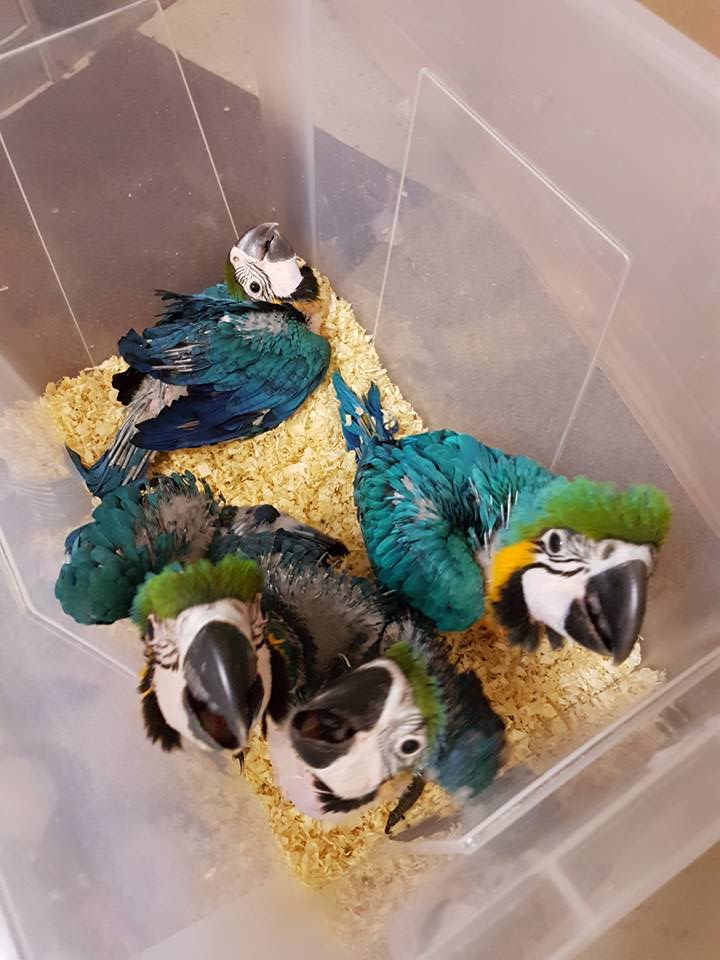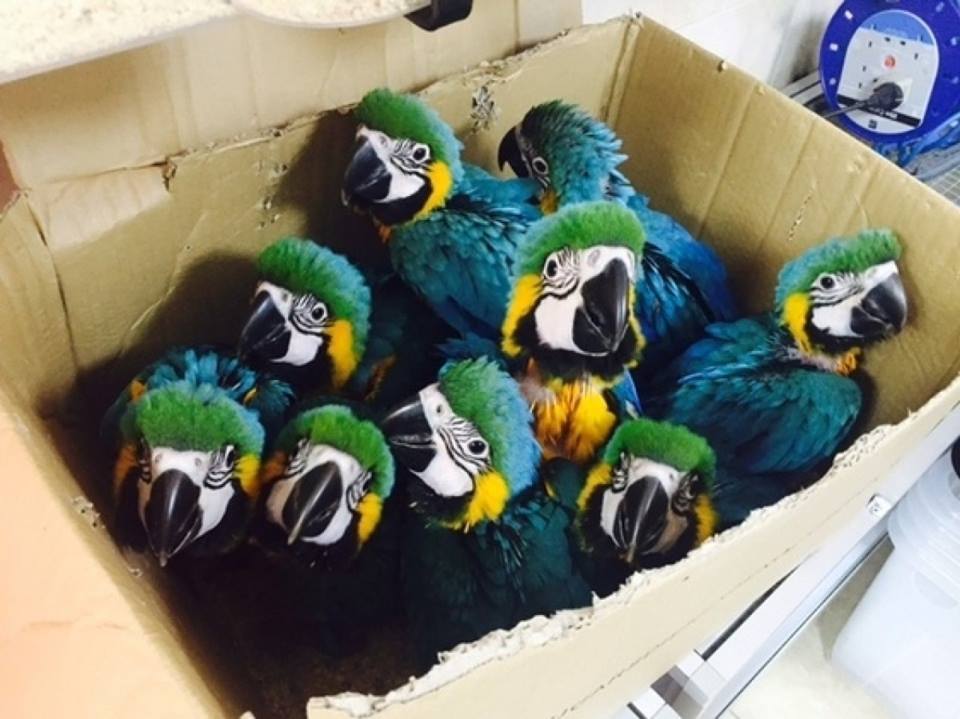Description
Description
These birds, blue golden macaws can reach a length of 76–86 cm (30–34 in) and weigh 0.900–1.5 kg (2–3 lb), making them some of the larger members of their family. They are vivid in appearance with bright aqua blue feathers on the top of their body except for the head, which is colored. The bottom, however, is a rich deep yellow/light orange. Their beak is black, as well as the feathers under their chin. Its feet are of a gray color, save for black talons. The bird has white skin, with its face having nearly no feathers beside a few black ones spaced apart from each other forming a striped pattern around the eyes. The irises are pale light yellow.
Blue golden macaws can live from 30 to 35 years in the wild, and reach sexual maturity between the ages of 3 and 6 years.
Little variation in plumage is seen across the range. Some birds have a more orange or “butterscotch” underside color, particularly on the breast. This was often seen in Trinidad birds and others of the carribean area. The blue-and-yellow macaw uses its powerful beak for breaking nutshells, and for climbing up and hanging from trees.
Breeding of Blue golden macaws
The blue-and-yellow macaw generally mates for life. They nest almost exclusively in dead palms and most nests are in Mauritia flexuosa palms. The female typically lays two or three eggs. The female incubates the eggs for about 28 days. One chick is dominant and gets most of the food; the others perish in the nest. Chicks fledge from the nest about 97 days after hatching. The male bird’s color signals readiness for breeding. The brighter and bolder the colors, the better the chance of getting a mate.
Temperament
Their sociability and even, sweet disposition makes blue and gold macaws a great pet. Their intelligence, willingness to learn, and talking ability are a plus.
When allowed to socialize with a variety of people, blue and golds do very well adapting to different people and other birds. The blue and gold is a fantastic bird for tricks. They’re a popular headliner at bird shows, and many owners may even take them out around town with the help of bird leashes and car seats.
Around the house, these blue golden macaws may act like friendly dogs. They enjoy being near their owners and seek out attention. They are also content on their perch, watching the activity around them.
Please do contact us for any more information





Faizan –
I am intrested in macaow
admin –
Dear Valued Customer,
We have replied to your request directly to your email, please open your email and read.
Kind Regards